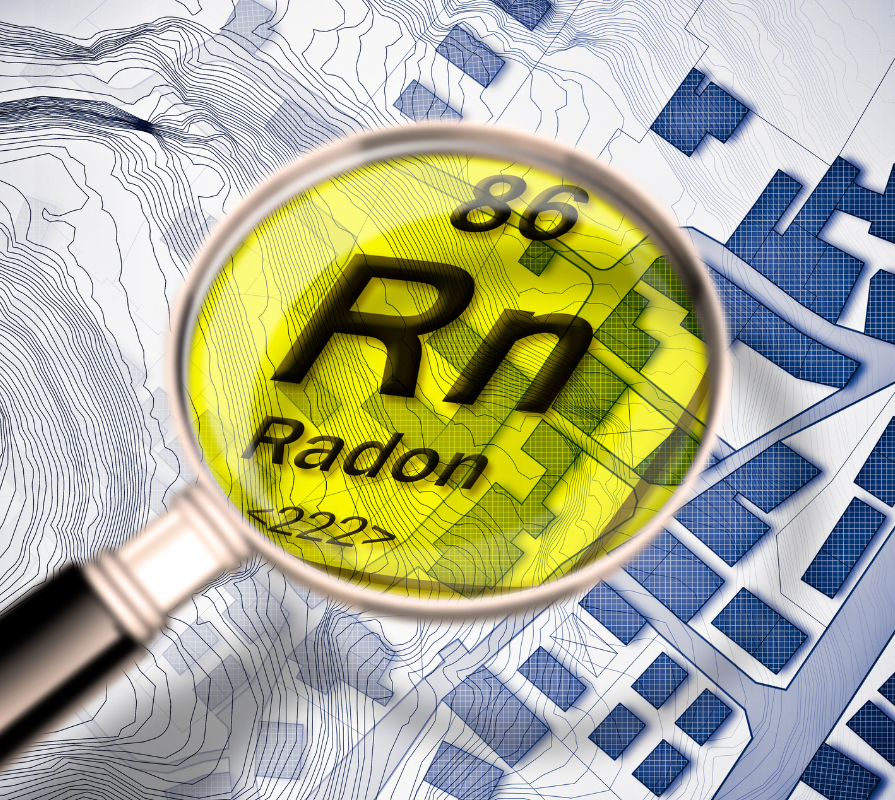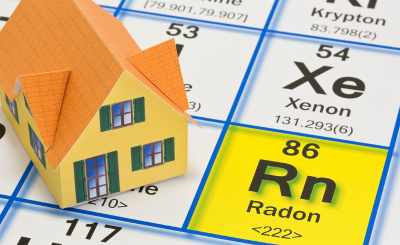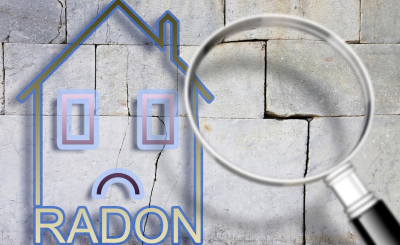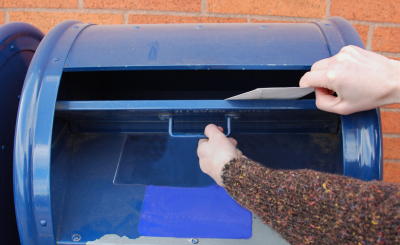
Exposure to Radon Gas
Radon is invisible and odorless—but testing is simple and can help reduce lung cancer risk.
Radon is a gas you can’t see, smell, or taste, but it could be present in your home and pose a risk to your health. It is a radioactive gas that forms naturally when uranium, thorium, or radium break down in rocks, soil, and groundwater. People can be exposed to radon primarily from breathing it in as it decays and releases radioactive particles.
Long-term radon exposure can lead to lung cancer. The U.S. Environmental Protection Agency (EPA) estimates that radon is responsible for about 21,000 lung cancer deaths every year in the United States. It is the second leading cause of lung cancer, after smoking.
How Does Radon Enter a Home or Building?
Radon can enter homes through cracks in floors, walls, and foundations, and collect in living spaces. The amount of radon in a house depends on many factors, including the type of soil and rock around and under the home’s foundation, and the home’s design and construction.
The only way to know if your home has elevated levels of radon is to test for it. Testing is inexpensive and easy, and it can be done either by purchasing a do-it-yourself kit from a home improvement store or hiring a professional to do it for you. If you find that your home has elevated levels of radon, there are steps you can take to reduce your exposure to it.
How to Test Your Home for Radon and Take Action
Testing is the only way to know if your home has elevated radon levels. Radon levels can vary significantly from home to home, even between neighboring houses.
You can choose between short-term and long-term radon tests:
- Short-term tests measure radon levels for 2 to 90 days
- Long-term tests measure the average radon concentration for more than 90 days
- Long-term tests provide a better indication of your home’s average radon level
Radon tests are easy to use and inexpensive. Contact your state or local radon official for recommendations on the most appropriate test for your needs and conditions.
If your home’s radon level is at or above 4 picocuries per liter (pCi/L) of air, the U.S. Environmental Protection Agency (EPA) recommends taking action to reduce it.
Take action today - Testing is as easy as 1, 2, 3!

1 - Order a test.
1 - Order a test.
You can get one from your state or local health department or from www.sosradon.org/purchase-kits.

2 - Place the kit in your home
2 - Place the kit in your home
Make sure you place the kit according to the included instructions.

3 - Send the test to the lab in the postage paid included envelope.
3 - Send the test to the lab in the postage paid included envelope.
Your test results will be sent to you via email within a couple of weeks.
While you’re waiting, share this important radon awareness message with your friends and family.
What if I have high radon levels?
One of the most effective ways to reduce radon levels in a home is to increase ventilation. This can be done by opening windows and doors, or by installing a ventilation system. Another option is to seal cracks and other openings in the foundation and walls to prevent radon from entering the home.
If you are a smoker, it is especially important to test your home for radon. Smoking and radon exposure can significantly increase your risk of lung cancer. If you find that your home has elevated levels of radon, it is crucial to take action to reduce your exposure to it.
Did you know that approximately 1 in 15 U.S. homes has radon levels at or above the EPA action level?
Testing is the only way to know if your home has elevated radon levels.
The Environmental Protection Agency (EPA) has Data and Information on radon specific to your area. Find your state radon contact and information.

Please note that this article is intended to provide general information about radon and lung cancer risk, and is not intended as a substitute for medical advice. If you have concerns about radon or lung cancer, please consult a healthcare professional.
Beyond Radon: Other Lung Cancer Risk Factors You Should Know
Anyone with lungs can get lung cancer – know the risks.

